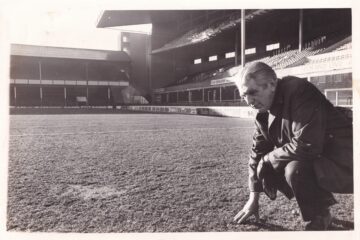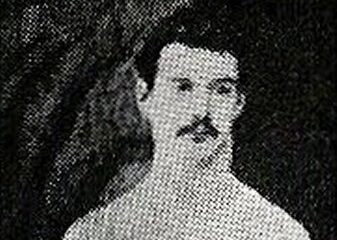by Rob Sawyer with Derek Temple
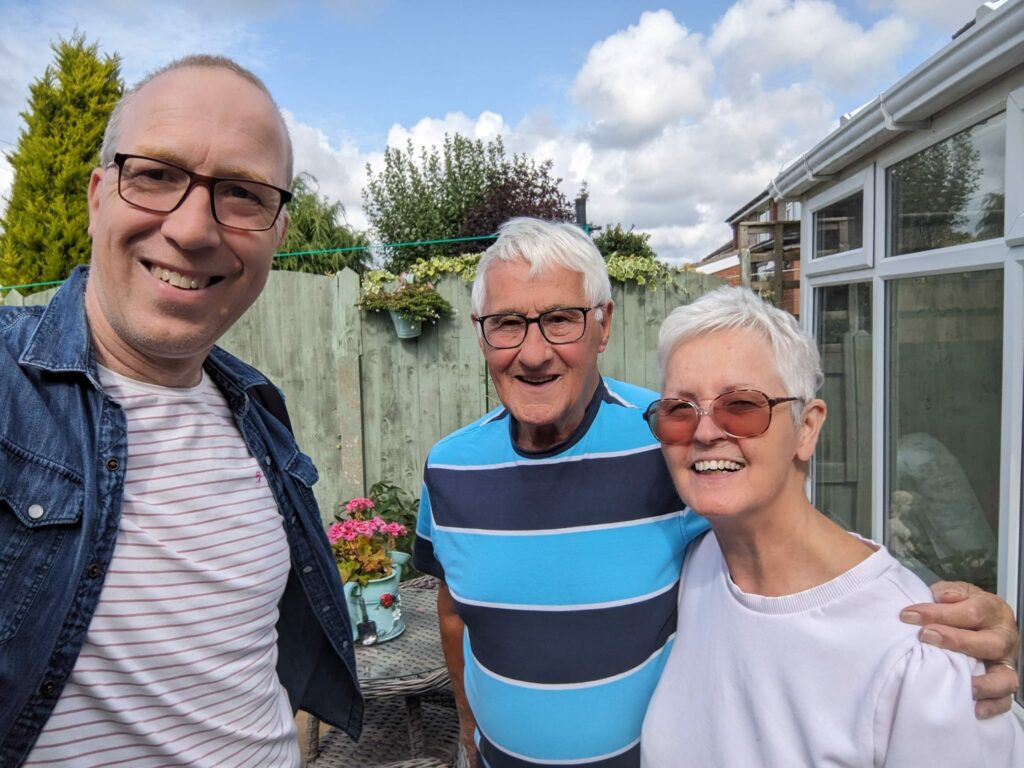
As Everton kicked off their 1966 FA Cup campaign the omens were inauspicious, the club’s previous taste of cup glory had been 33 years previously when Dean, Stein and Dunn hit the goals to defeat Manchester City. A season of underachievement in the league had boiled over the previous weekend. In the aftermath of a 2-0 defeat on an icy pitch at Bloomfield Road, the infamous ‘Blackpool Rumble’ (© David France) took place in the car park. Some Toffees were incandescent that Goodison idol, Alex Young, had been omitted in favour of teenage debutant, Joe Royle. As he went to board the team coach, Harry Catterick felt the ire of the disaffected supporters. What happened next has been debated for decades; was manager kicked or shoved – or did he merely stumble due to being distracted?
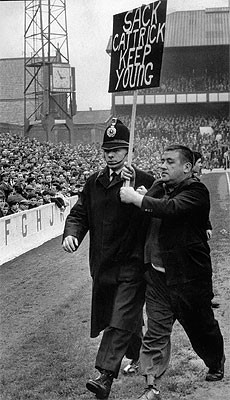
Derek Temple, in the Everton team that day, was an eye-witness: ‘We had lost that game. Bally played for Blackpool and he was on good form. There were quite a number of spectators who were upset because Harry Catterick had dropped Alex Young for Joe to make his debut. Alex was one of their favourites so they showed their displeasure to Harry. Getting on the coach afterwards, I was walking behind Harry when someone came from behind and tripped him. He did stumble but didn’t fall; then he got on the coach quickly. There was a big thing made about it but the story that came out covered up a loss; so perhaps it was political really.’
Derek, having been injured for most of the championship-winning season of 1962/63, had won back the number eleven shirt from John Morrissey. Originally a central forward, the long-serving player was never a classical winger, as he explains: ‘Joe Royle recently made an interesting point to me: “You weren’t a winger – you were a goal-scorer and striker.” And that was probably true. Harry Catterick didn’t say to me how to play – he just put number eleven on my back. As far as I was concerned my job was to play at left wing but if I didn’t see much of the ball I was inclined to go looking for it. From being a schoolboy, I always knew where the goal was – I could always hit the target.’
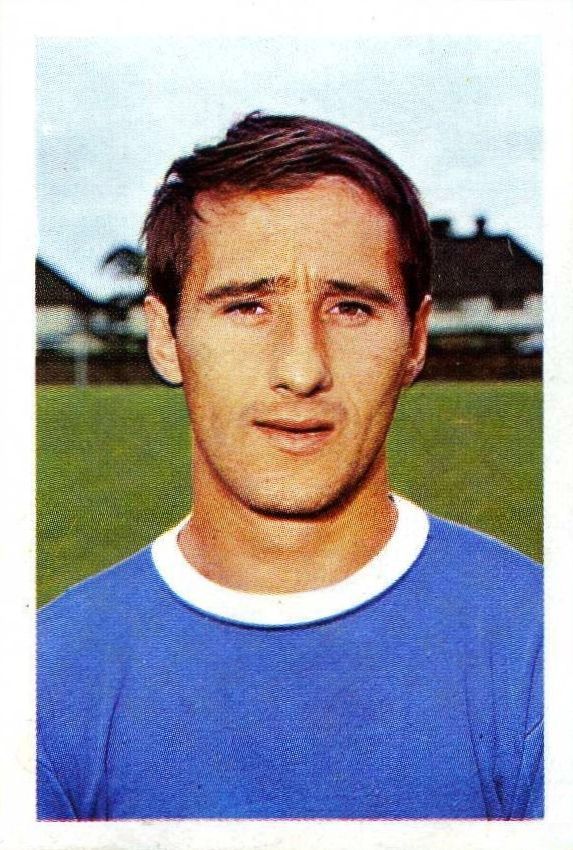
FA Cup 3rd Round – 22 January 1966: Everton 3 Sunderland 0
A bruised Harry Catterick reverted to his most experienced line-up for the cup encounter at home to Sunderland. Alex Young was restored in place of Joe Royle whilst young goalkeeper Geoff Barnett made way for Gordon West. A comfortable win was given added gloss by two late goals. Jack Rowe reported on the 3-0 victory:
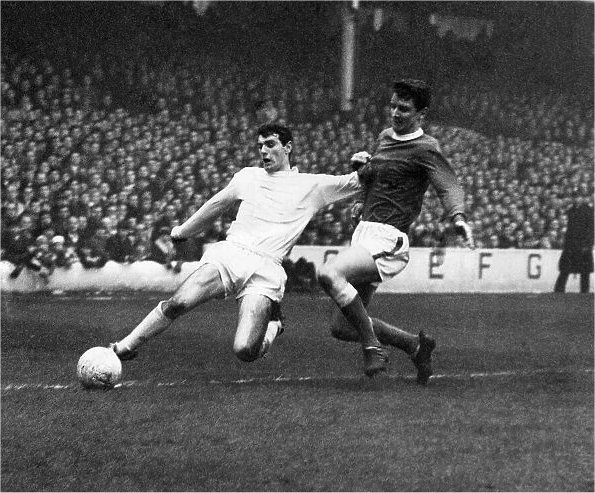
Everton controlled so much of the play and delivered so many threats that it was remarkable that they were only ahead by Temple’s goal, after 36 minutes, for so long. Scott and Temple did some scintillating things; Scott, in particular, had a rampant afternoon. Scott did the work and made the centre from which Temple headed in off the post for the first goal.
Four minutes before the end Pickering hit such a first time great shot from about 20 yards…that it was in the net before Montgomery could move. Young scored another beauty with a minute left with a control and shot which illustrated what a fine player he can be. The undeniable fact is that when he is the forward line there is a touch of class and Young showed it, not once, but half a dozen times.
Derek recalls: ‘It was a routine win – we were getting into some good form around that time. In those days there were teams that you should beat and we generally did. We were normally quite good a home – it was not a fortress, but we could beat most top teams; we were classed among them of course with the money that had been spent.’
FA Cup 4th Round – 12 February: Bedford Town 0 Everton 3
The 4th round draw dished up the archetypal banana skin with a visit to non-league Bedford. However, in the event, a Derek Temple brace was complimented by Fred Pickering heading home a Tommy Wright cross after the defender was freed down the right flank by Alex Scott.
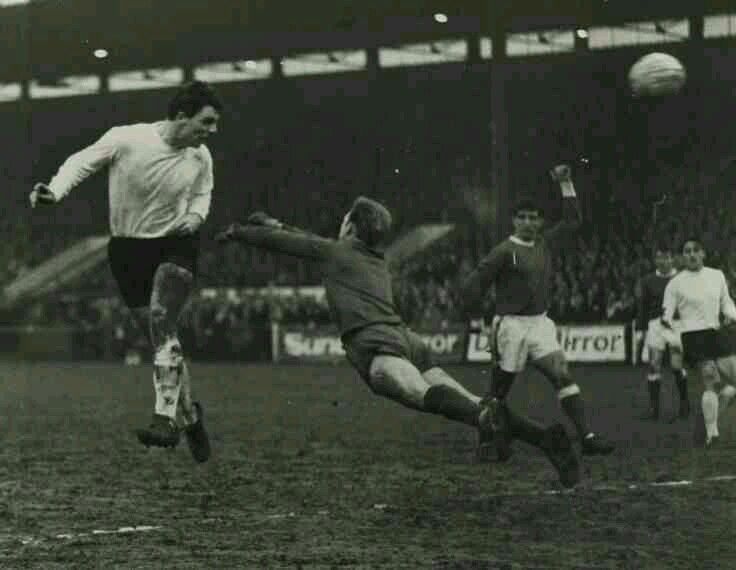
Derek remembers: ‘I think Bedford were in Southern League and were quite a good League then. We used to discuss teams before games at training and Harry was adamant that they were a top class side and could be in the Second Division. So he built it up that we weren’t going there for a walkover and it worked out. They tried to kick us a little bit but we had a few players that could sort that out. It was another routine win. I got on the end of two Scottie crosses – one a header and the other a side-footer.’
The press reported:
Scott and Temple are, at present, at the peak of their form and it was this double-edged weapon which blasted Bedford from the competition. Town could not hold Scott, no matter how hard they tried, and when he cleared the defence with a centre from the touchline, in raced Temple to head the ball downwards into the net on 37 minutes.
Six minutes later Temple increased the advantage from another Scott centre: Derek swept the ball into the net with an ease which showed just how far out of their depth these gallant non-leaguers were.
FA Cup 5th Round – 5 March: Everton 3 Coventry City 0
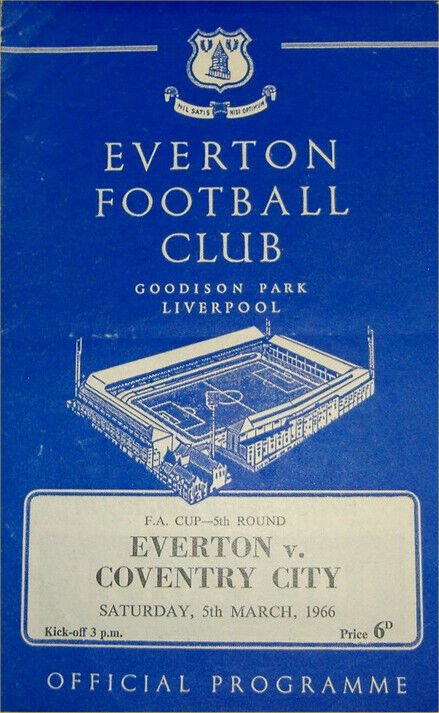
Coventry supremo Jimmy Hill had talked up the chances of this second-tier outfit before the tie but, despite the Royal Blues being described by Horace Yates as ‘not at their peak’, the Sky Blues (playing in their change, red, kit) proved no match. Yates noted: ‘They were far too good for a side so lacking attacking punch. The withdrawal of Ray Pointer, their most effective forward, to a defensive role, was akin to cup-tie suicide.’
With Wright injured, Sandy Brown came in at right-back and formed, according to Yates, ‘a formidable pair’, with Ray Wilson. Brian Labone was singled out by the journalist for his flawless display: ‘No tribute to Labone can be too great. He was so tremendously efficient, aided and abetted he was by a mobile and industrious Harris. Labone dominated everything in the air and anticipated everything on the ground.’
On thirteen minutes, Alex Young, playing as a foil to Fred Pickering, hit the opener. Yates reported: ‘Young’s resolution took him to Scott’s cross a shade in front of Farmer. By direction, rather than power, Young shot past the goalkeeper who was vainly trying to regain his feet…It was not only the opening goal he claimed that undermined Young’s worth…there was real class about much of his constructive endeavour.’
With 69 minutes on the clock, Derek Temple continued his fine scoring run; his goal described here: ‘Pickering won a duel in the air with Curtis to send the ball invitingly into the penalty area…the winger had it under control immediately and slipped his shot wide of the advancing Wesson.’ Then, with full time approaching, Pickering was rewarded for his efforts by scoring the third goal: ‘Scott returned a clearance to the middle for the centre-forward to hit the ball powerfully and precisely into goal.’
Horace Yates, peering at the tea-leaves at the bottom of his Goodison press-room cuppa, declared: ‘Everton can go all the way to the final.’
FA Cup – Quarter Final – 26 March: Manchester City 0 Everton 0
FA Cup – Quarter Final Replay – 29 March: Everton 0 Manchester City 0
FA Cup – Quarter Final Second Replay – 5 April: Everton 2 Manchester City 0 (at Molineux)
The quarter final draw saw a tricky trip to Maine Road to take-on Joe Mercer’s Manchester City, then a physical, Second Division outfit. The nil-nil result was declared in the Daily Post as:‘Mission accomplished, without power players Jimmy Gabriel and Fred Pickering.’
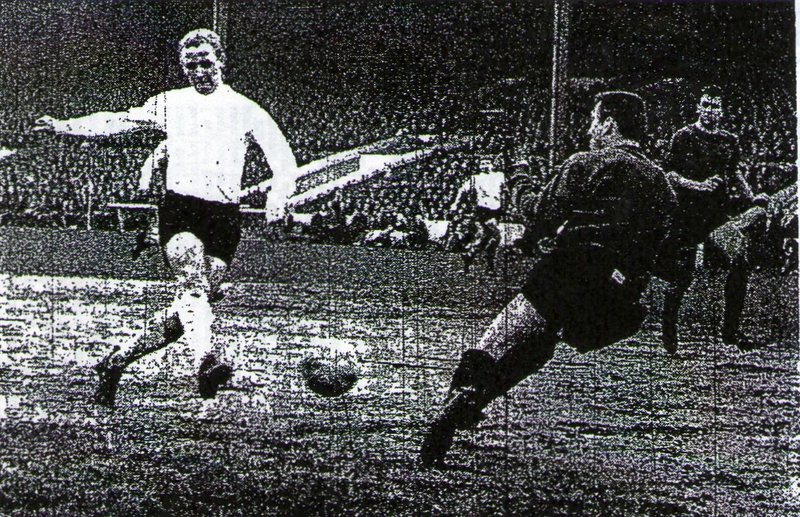
By this time, Fred Pickering had started to experience knee problems which would bring heartache at the season’s finale. For the replay the former Blackburn man returned, but he could not inspire his team to victory. The attritional match ended goal-less, in spite of 30 minutes of extra time being played. A neutral venue was selected for the second replay a week later. From the whistle City stormed out of the blocks, battering Everton with attacking intent. Pardoe, on City’s right flank, was well-marshalled by Ray Wilson but Neil Young (often unfairly cast in the shadow of Summerbee, Bell and Lee – much like John Morrissey with Everton’s Holy Trinity) gave Tommy Wright a testing time on the opposite flank. Having peppered the Everton goal for 37 minutes, City were caught with a sucker-punch when Derek Temple crashed home past Dowd from an Alex Scott free-kick. Minutes later Pickering, set up by Brian Harris, swivelled and struck home, in off the bar. Everton were able to see out the second half without too many alarms.
Derek recounts:‘City started off like they were on drugs – they were buzzing. In the first 25 minutes they were well on top and then it changed. Goals change games, of course, and I was fortunate enough to knock one in. We got a free kick out on the right side and everybody lined up. I would keep out and come round the edge of the box. I ended up on the corner of the six yard box – Scotty crossed in a good ball and it came right across me. I was going to head it but I slipped on my right foot so I volleyed it with my left and it flew in. Fred scored after that and he won 2-0. It was hard going but we managed it – then we started wondering if our name was on the cup.’
FA Cup – Semi-Final – 23 April: Everton 1 Manchester United 0 (at Burnden Park, Bolton)
Having overcome the blue half of Manchester, Everton took on the red half in the semi-final. The Toffees received censure (and a £2,000 fine) for fielding a weakened side the previous weekend against Leeds United, in anticipation of the big cup tie. Despite this respite, Harry Catterick erred on the side of caution with Fred Pickering’s troublesome knee. With John Morrissey unwell, the manager plumped for Mike Trebilcock, who had lined-up at Elland Road. The light-weight Cornishman came in as an inside forward, with Alex Young reverting to centre-forward. Pickering was understandably frustrated about his omission as he told the press:
‘Last Wednesday I had a tremendous try-out and came through in great style…When the boss told me I was out – that he could not afford to take the chance of a break-down – I could have cried. In calmer moments I realised Mr Catterick was right. To have saddled the lads with the risk of taking on United with ten men was unthinkable. I must use the remaining three games to prove that my knee is perfectly sound again.’
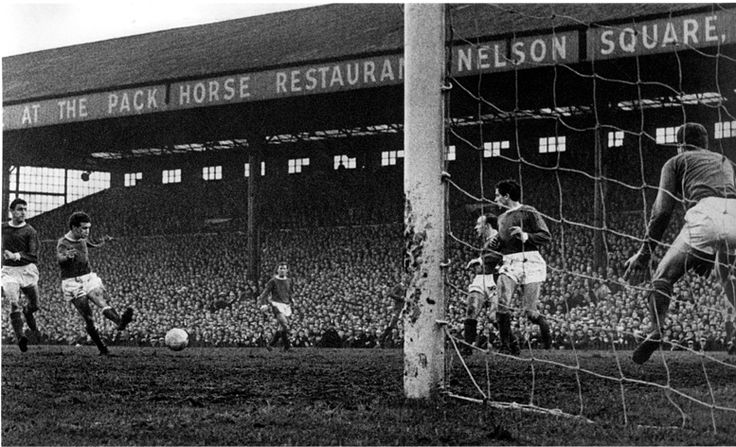
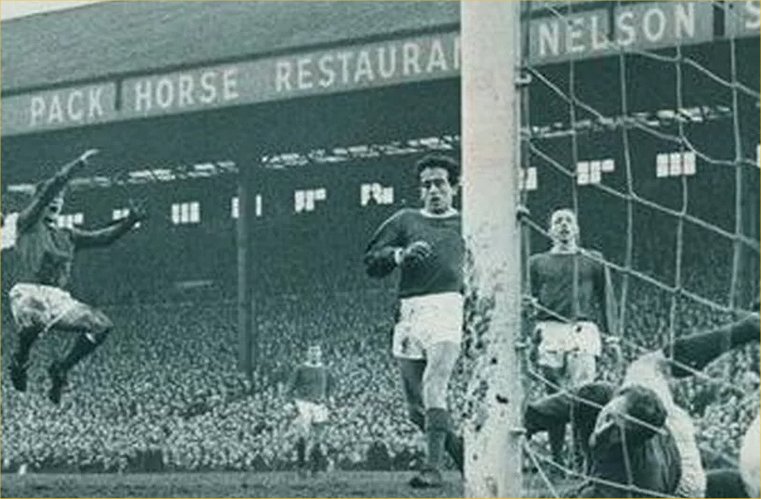
The match was finely balanced and was decided by a 79th minute goal described thus in the Daily Post:
An onward flick to Temple by Young, probably his most accomplished move of the match, and the winger of whom so little had been seen, shocked a complacent defence with his startling speed. Into his stride immediately he left two defenders trailing, he hopped inside to hoist the danger signal we know so well. Goal-bound as he was, he was quick to realise that Harvey was even better placed for a shot. Across went the ball to the incoming youngster. Resisting the temptation to lash the ball first time he coolly calculated his situation and then pulled his shot away from the desperately diving Gregg…Precision rather than power beat the goalkeeper’s outstretched fingers and everybody knew that this was the goal that would take Everton to their cherished ambition – a long delayed appearance at Wembley.
In fact, with virtually the last kick of the game, Denis Law was inches from converting Nobby Stiles’ cross-shot but Everton rode their luck to book their cup-final place. For Derek this was the only round he which he did not score but he was delighted to have provided the assist for Colin Harvey. He recalls: ‘United were probably favourites to win. George Best didn’t play but they had Charlton, Law and all the other stars. It was a good game but it’s the old thing – your name’s on it. We didn’t play badly and it was a very tight game. 1-0 was what it was going to be either way. Everton had not been to a final since 1933 when they won it. It was tremendous for us as it is true that the worst leg to lose in is the semi, having come all that way.’
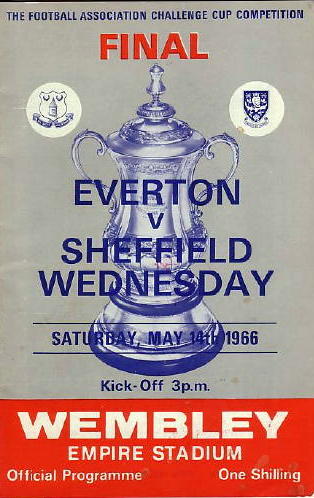
FA Cup Final – 14 May: Everton 3 Sheffield Wednesday 2 (at the Empire Stadium, Wembley)
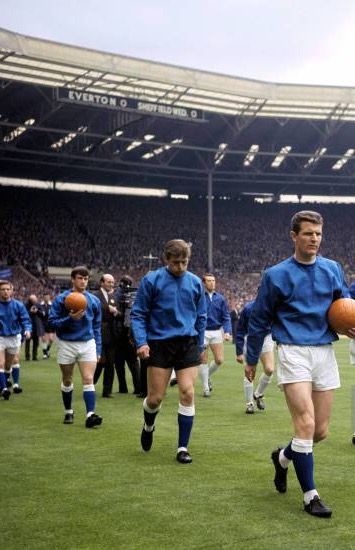
Derek recalls the build-up to the big day. ‘We went down on the train on the Thursday. We stayed at Selsdon Park Hotel but wives and girlfriends, who travelled the next day, stayed somewhere else. Outside the hotel we could hear somebody hitting a golf ball with a wood. Crack! – a wonderful sound – it was Bernard Gallacher. There were plenty of good quality grass surfaces at the hotel for training, which was nothing too heavy, it was just keeping us loose.’
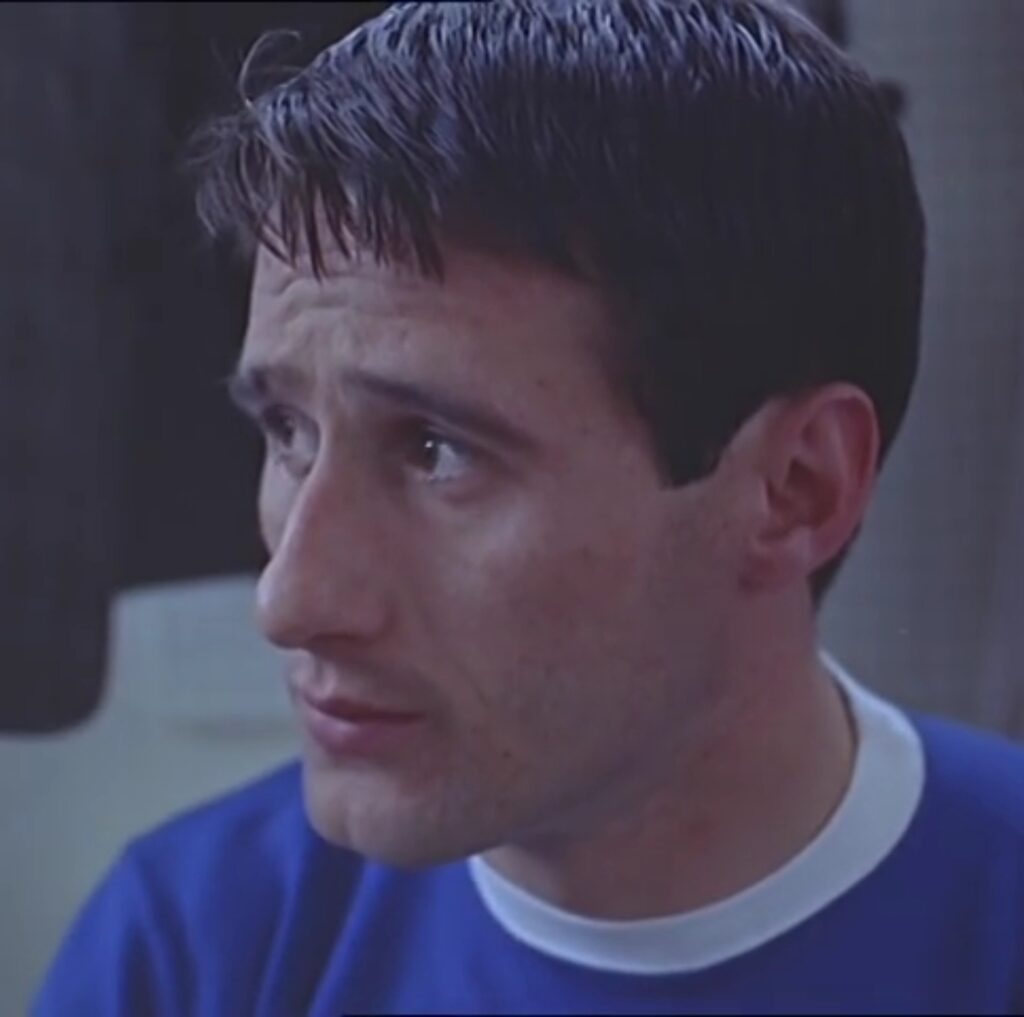
On the Friday morning, the manager broke the news of his team selection to the squad. For Fred Pickering and Sandy Brown the bulletin was devastating as they lost out to Tommy Wright and Mike Trebilcock. Derek recalls: ‘Although Fred played in the second quarter-final replay he wasn’t fit – he’d hurt his knee and he was struggling. When he didn’t play in the semi-final, Mike came in. For the final, Harry did not have any choice really. All the players knew that Fred really wasn’t fit – it was a great shame for him but as a team you couldn’t afford to carry anyone at Wembley. Nerves get to you and I’m sure that Fred would have broken down on that turf. We were all desperately sorry for him. The other question was whether Tommy Wright or Sandy Brown played at right-back and Harry plumped for Tommy. Sandy was a good man to have at the club, but Tommy was a better full-back. Scotty used to say: “Harry’s a gambler – and a lucky one.”’
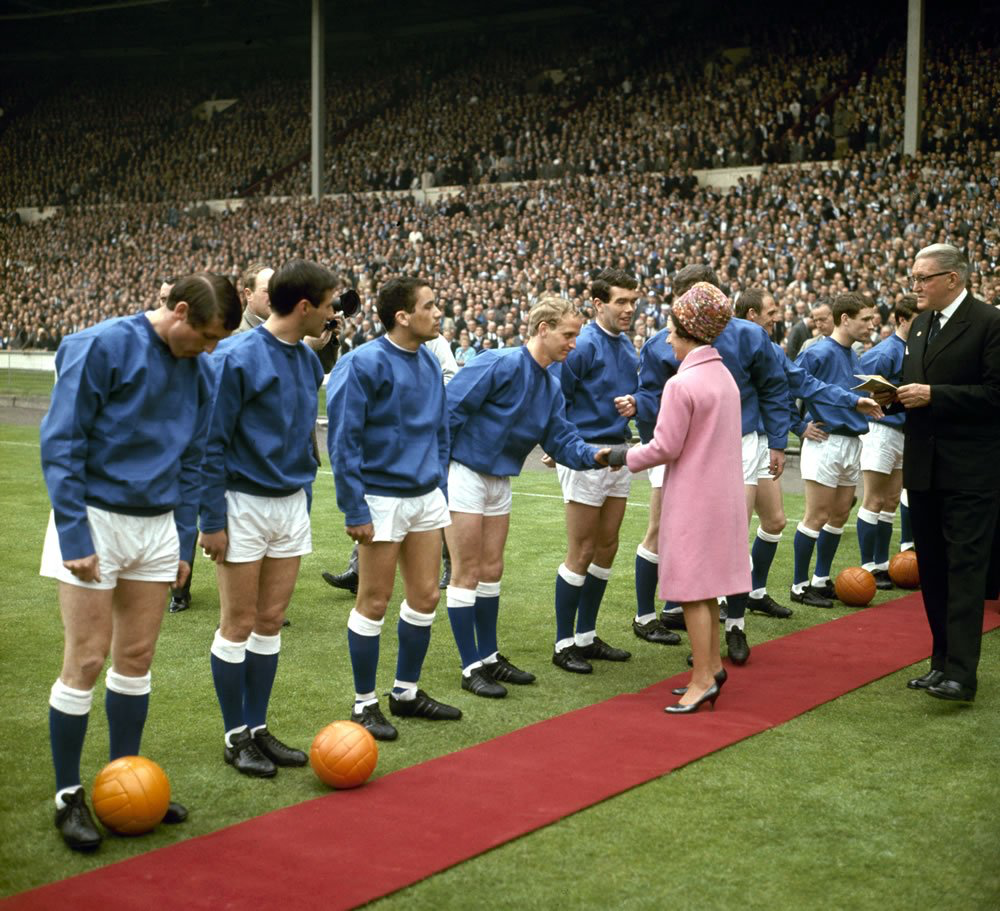
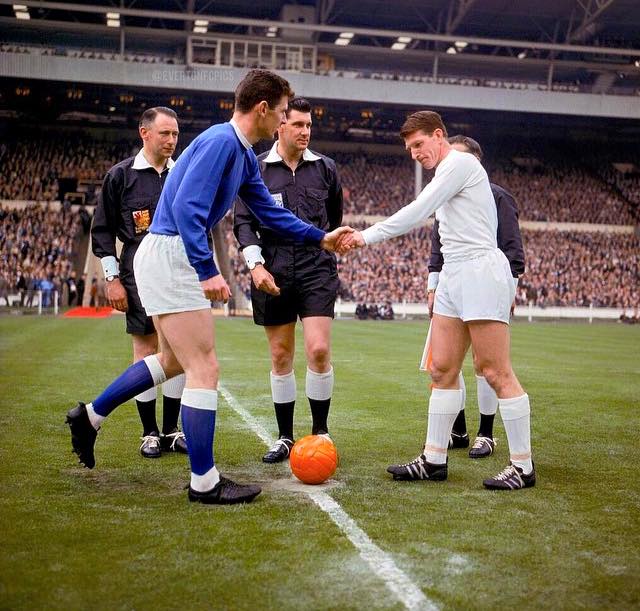
Pre-match, the team headed for the stadium with Derek peering out of the coach window: ‘The coach journey to Wembley was tremendous. The fans were all in the same colours but you could tell which were the Everton fans – they let you know!’
Despite the Scouse supporters’ optimism leading up to kick-off, a nerve shredding ninety minutes lay ahead. Derek takes us through the events on the pitch from his perspective:
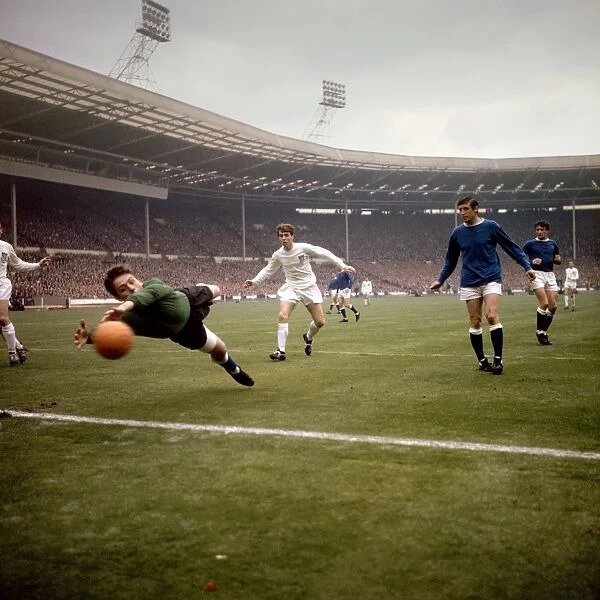
‘Sheffield Wednesday were the underdogs; we were firm favourites having trounced them in the league earlier on in the season. Man for man we were better but on the day it’s about how you perform. We hadn’t conceded a goal in all the rounds but then we conceded quite quickly at Wembley. Jim McCalliog struck the ball, Westy had it covered but it struck Ray Wilson’s heal and went in the other corner – it was a stroke of bad luck.
‘At half-time it was 1-0 with us still in it but then we went two down. But it’s a funny thing that when you are two up and the opposition scores it puts pressure on you, even though you are still a goal ahead. We got one back and then very quickly equalised – Mike put them away very well.
The Daily Post described Trebilcock’s rapid brace thus:
Temple flicked it down, smack in front of the in-running Trebilcock. Trebilcock struck it first time and Springett was left groping as the ball whizzed into the bottom corner of the net, wide of his left hand…The equaliser came five minutes later when Everton were awarded a free-kick not far outside the penalty area. Scott took it and chipped the ball to the far side when Labone challenged with two Wednesday defenders. Trebilcock met it some fifteen yards out and, with a right-foot swerving shot taken on the half-volley, again left Springett groping in anguish.


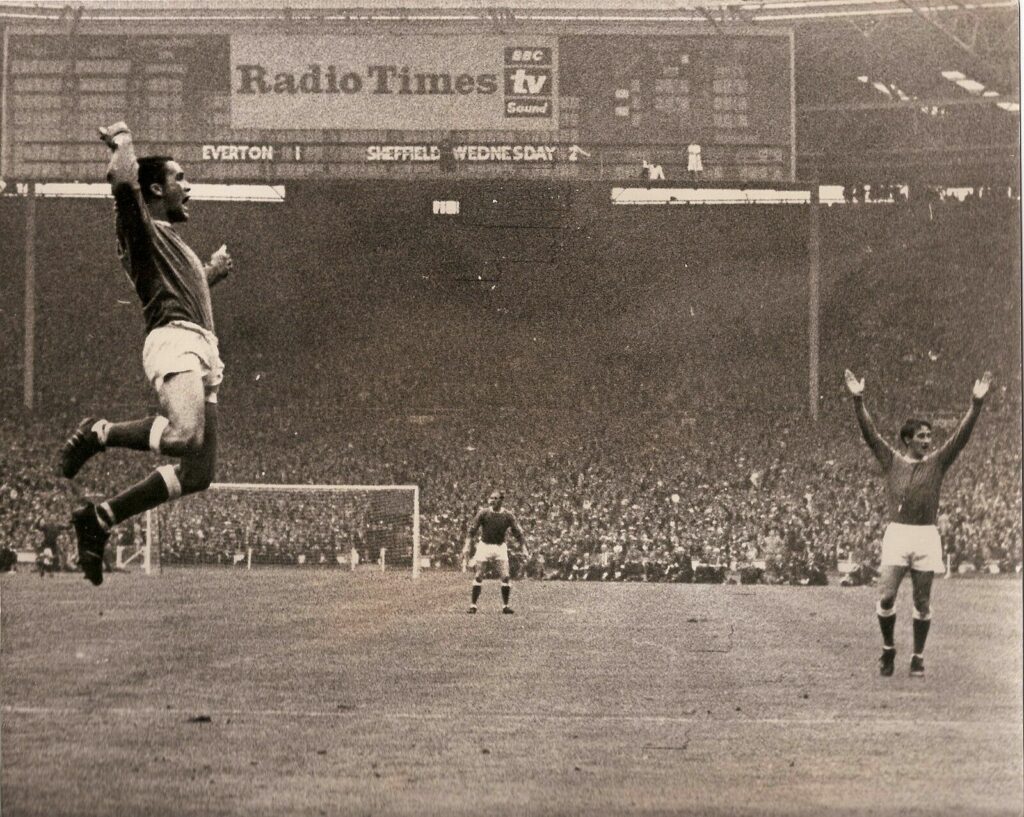
The game was now up for grabs as Derek recalls:
‘Then it was “game on” and the next goal could be the winner. I was seeing a bit of the ball – working hard and trying to get openings. I was up against a good, quick, strong, player in Wilf Smith but I wandered to the inside-right position and he didn’t follow me across. Colin Harvey hit a long ball and Gerry Young mis-trapped it. I was just running towards him in case the ball bobbled off his leg – you do it so many times in a game and maybe it comes off once in twenty times. Gerry was the last man as he was playing sweeper, so I was away. I had time to weigh up all the options; I looked up and saw Springett was on the edge of the six-yard box. He was a good goalie but he could not cover every spot. The ball came up just right at the edge of the box and I just picked the right corner. Bang! I hit it and it flew in. Then I could breathe a sigh of relief and get back to the centre circle.
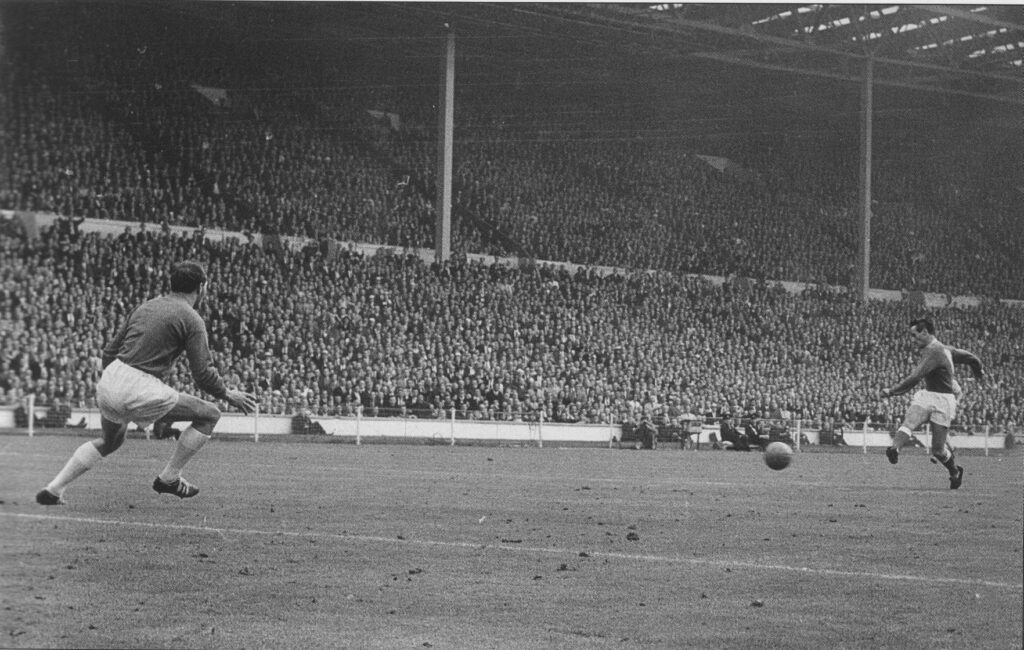
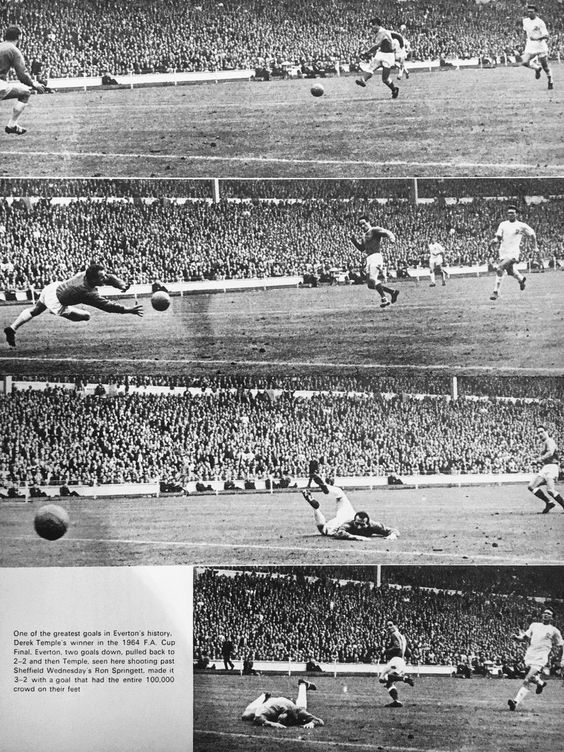

‘A few people have, since, said to me: “I thought that you hit it too early.” If so, it was a good job I mishit it! Wednesday weren’t going to lie down. They did come at us, but they were never anything to frighten us really. The time was played out – Jimmy Gabriel did a dance around the ball at the corner flag to use up time.’
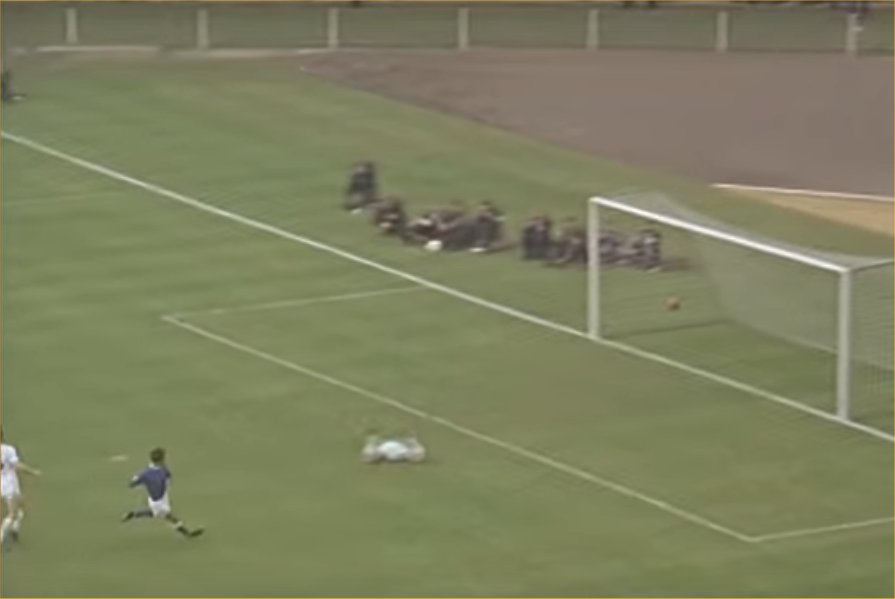

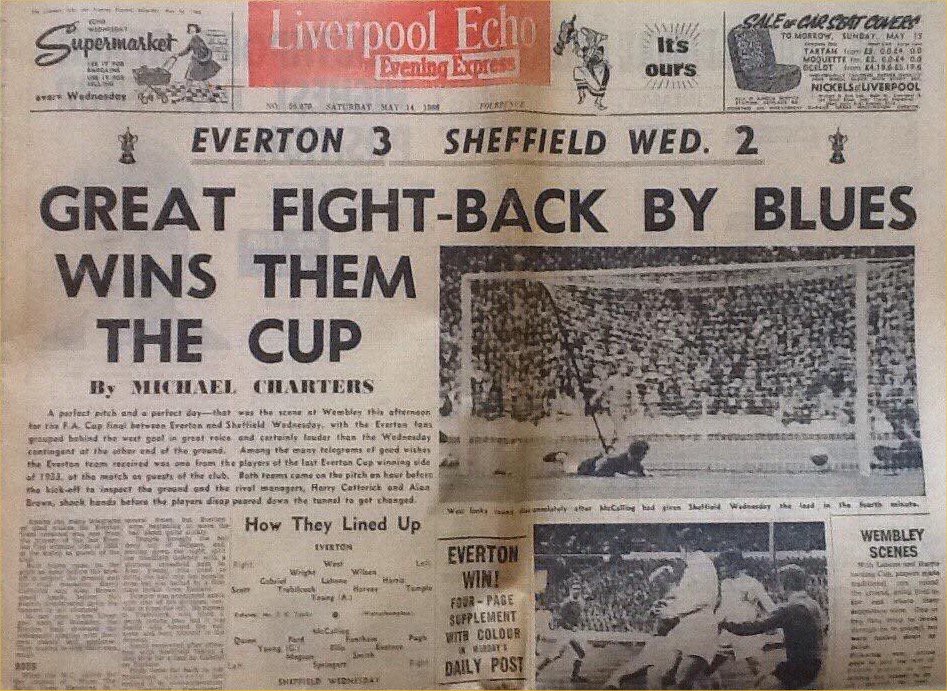
Jack Rowe, in the Daily Post, hailed the final result as the ‘finest fight-back in the history of Wembley’. He continued: ‘I put what happened even higher than 1953. Sheffield Wednesday were riding as high as any team could be and Everton with a bare 29 minutes left looked down and out.’
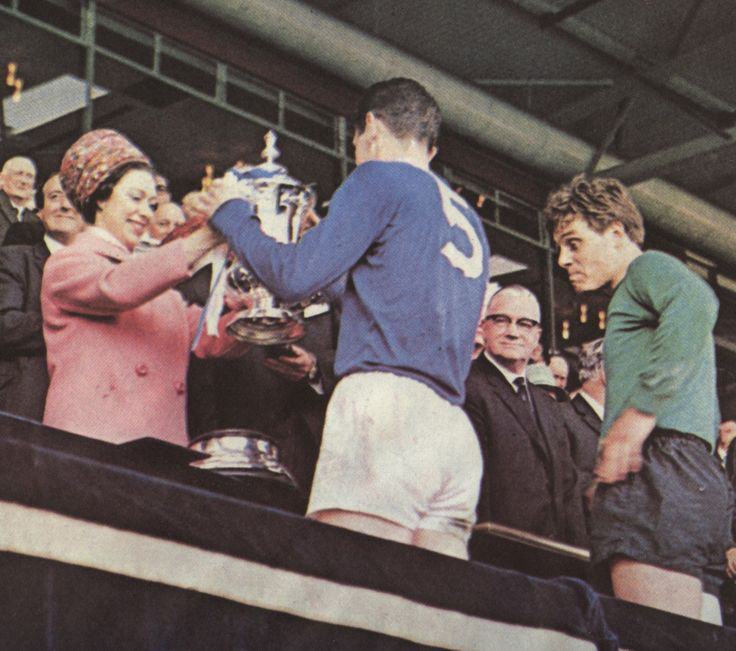
Rowe also reported on the reaction of Everton’s captain after collecting the trophy from Princess Margaret;
Labone had never walked around in a dream on or off the pitch, but he was near to it when he came down the tunnel with the cup. Twice he said to me ‘Pinch me Jack, just so I know that it’s all true!’ I obliged and he knew it was true all right. He said, ‘Team spirit did it – nothing else. This is the team a lot of people have been saying is all individuals, who have no spirit to fight. Perhaps this will convince everybody that we have team spirit.
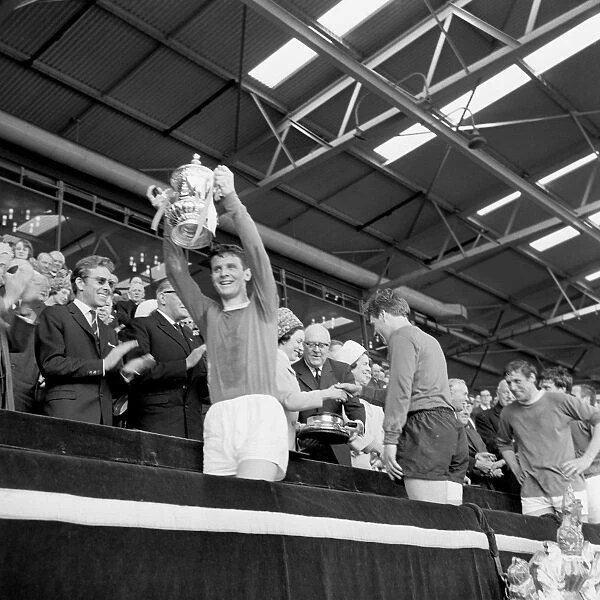

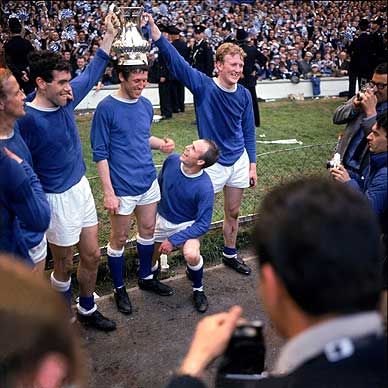
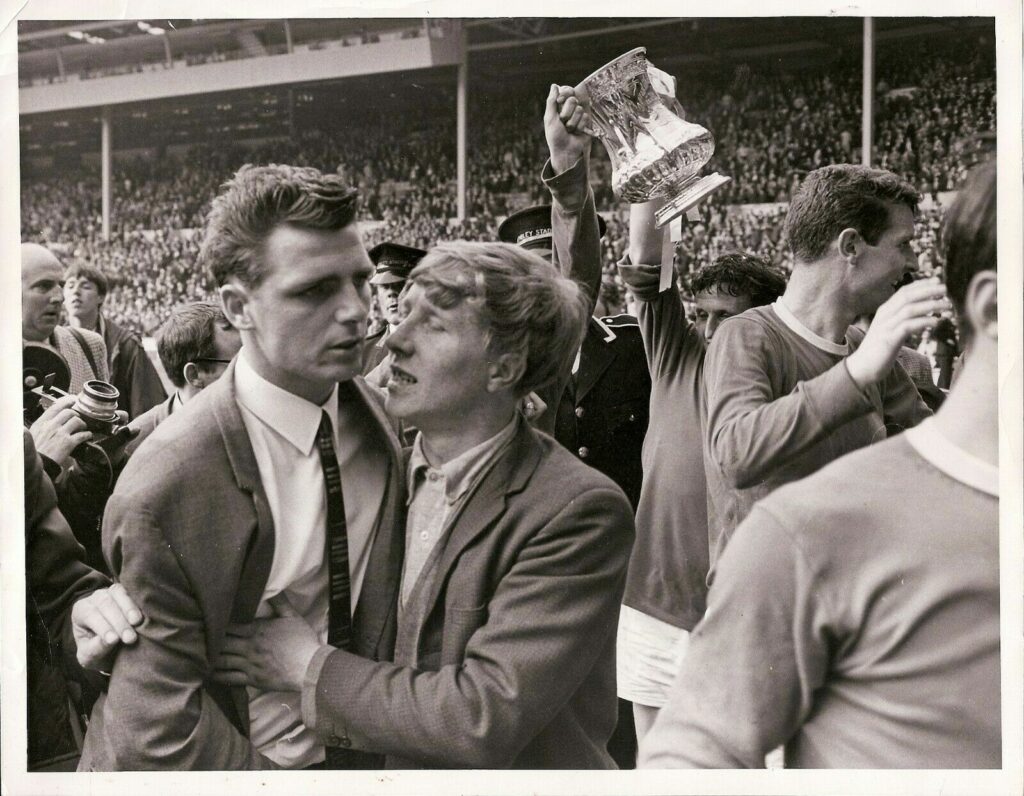
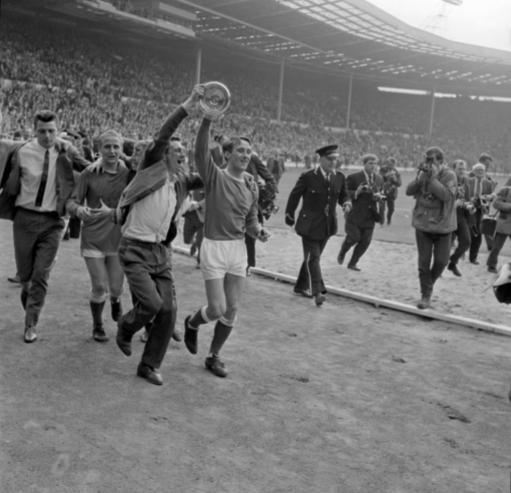
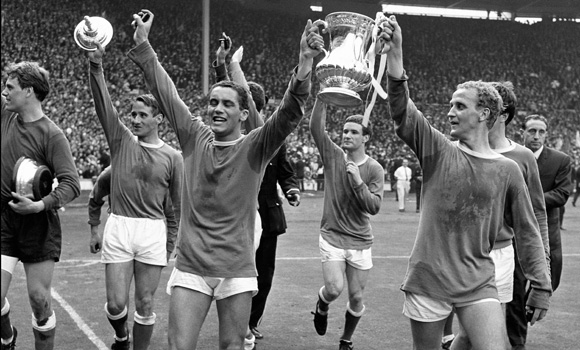
Harry Catterick, meanwhile, was recording stating, with event in Blackpool still on his mind: ‘They’re not kicking me now.’
Looking back, Derek struggles to recall details of the afterglow of victory: ‘I don’t remember much about after the game. I remember meeting Princess Margaret before the game (I was very surprised how small she was) but not so much collecting my medal. A lot of it is lost on you due to the euphoria. It didn’t really register that we’d won the cup until the next day when we were making our way home to Liverpool. I think most players felt the same way. There was a banquet afterwards at the Grosvenor House Hotel and our wives were booked in there – it was the time that we were reunited. It was a pleasant evening. Bill Dean, Billy Cooke and Norman Greenhalgh were there. I was thinking, then, that the 1933 final seemed ages ago. But here we are now and it’s fifty years after the 1966 final – that’s what amazes me.’
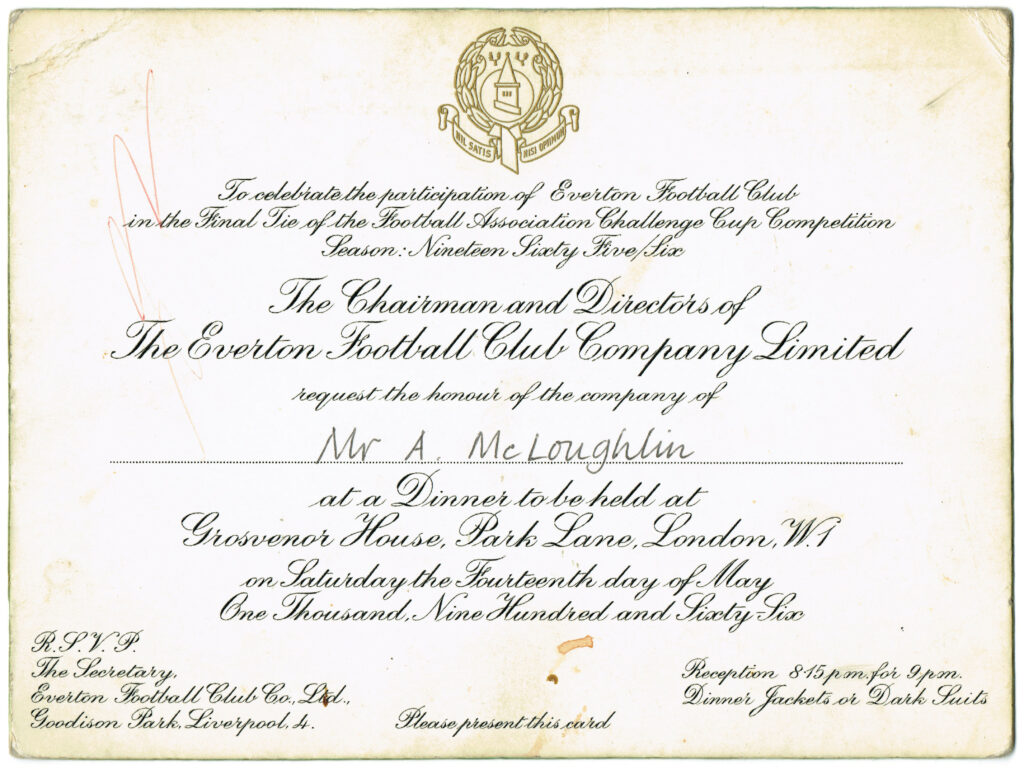
Not even the previous day’s events could prepare Derek for the reception that awaited the returning heroes on Merseyside. ‘We travelled back by train to Allerton and had a bus tour to St. George’s Hall. That’s when it hits you – I didn’t know there were so many Evertonians in Liverpool. They seemed to be at every window of every house and on the streets. The civic reception was very good. One of the lads said, “Did you notice that Harry wouldn’t let go of the trophy?” And I think that was true!’

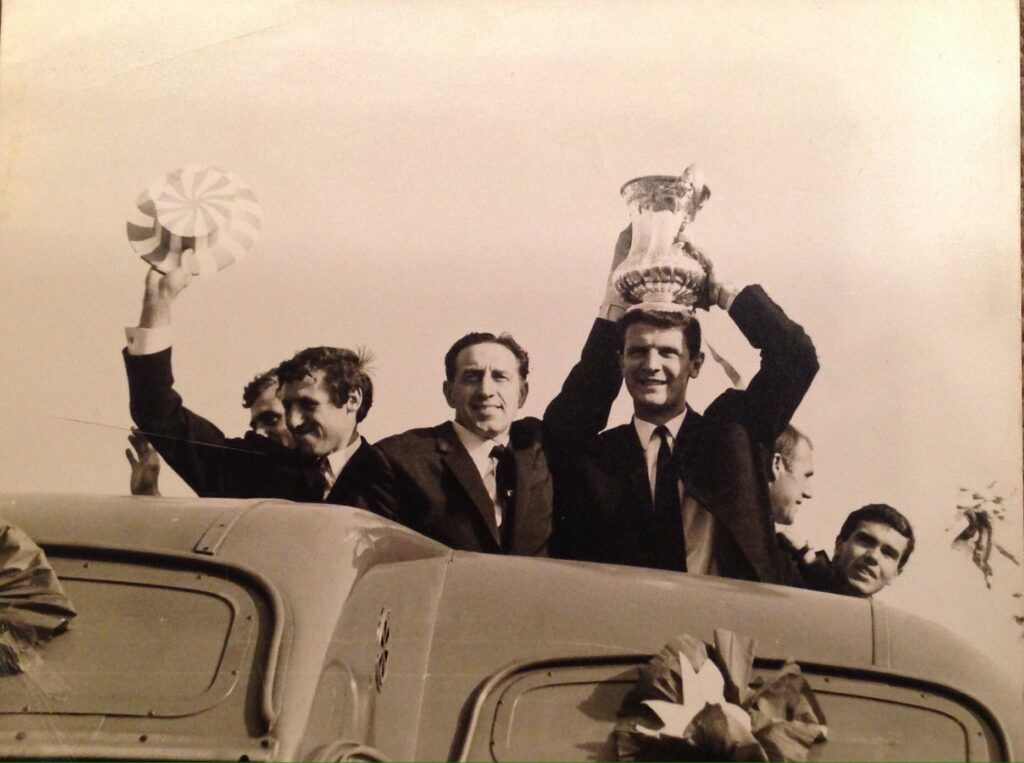



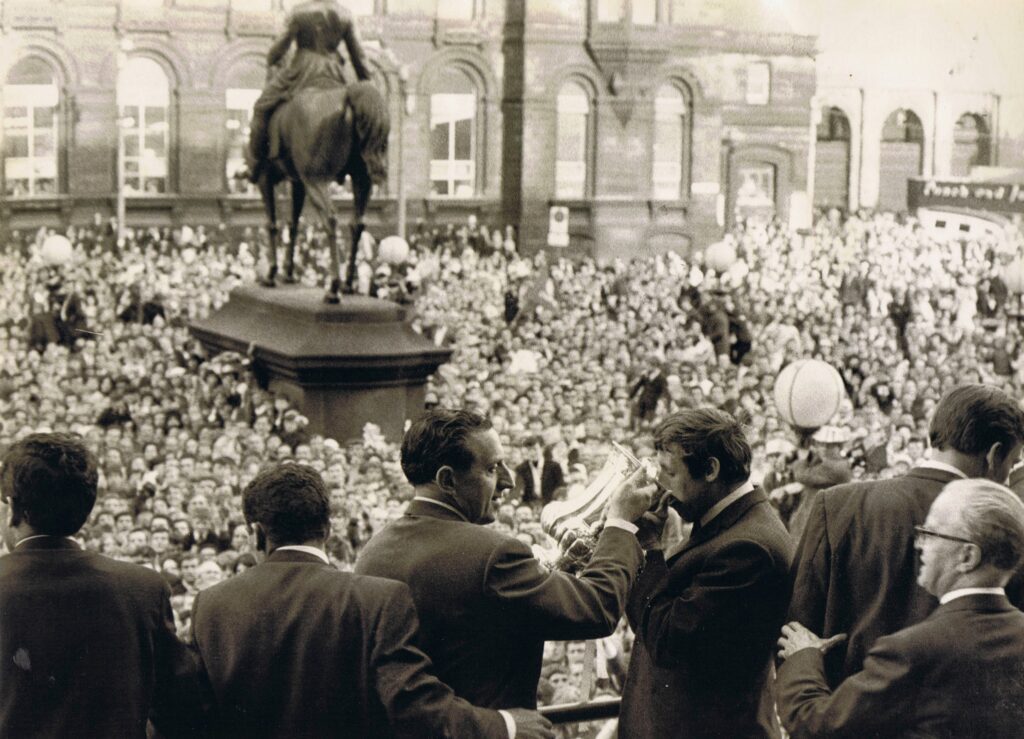
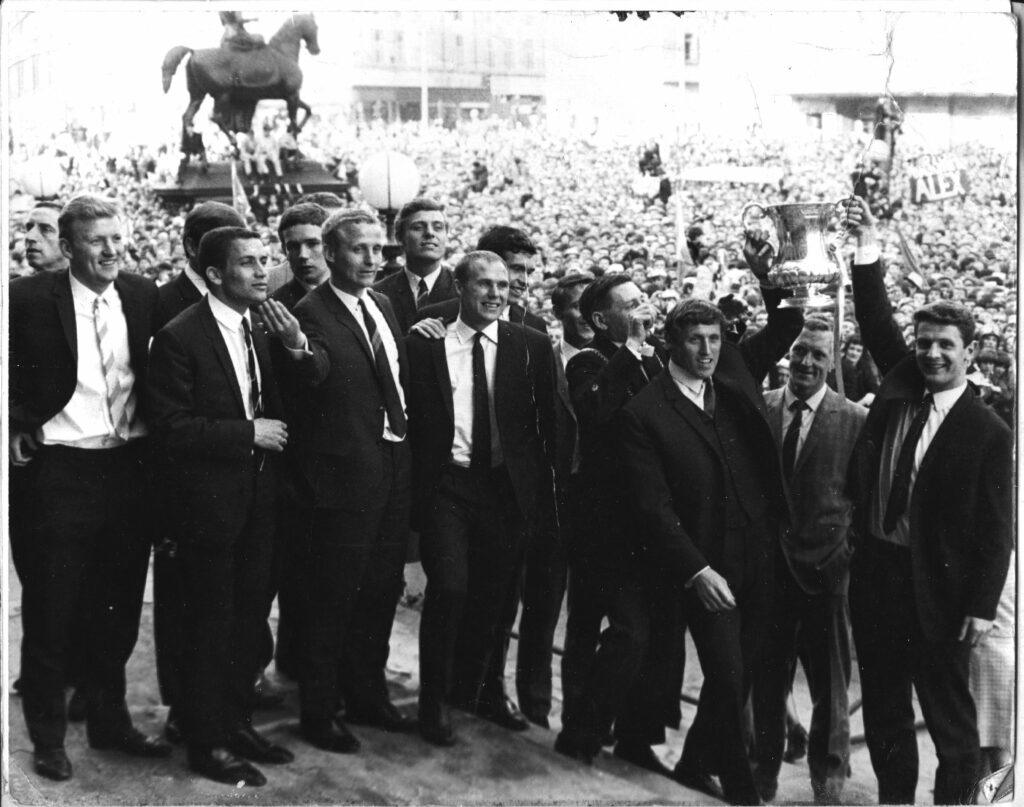
Despite the life-defining events of 14 May 1966, Derek has remained grounded in the subsequent half-century: ‘I do still get stopped in the street – you could say that I have dined out on it a few times! It’s nice for people to remember you for the good things. I always say that when my goal went in I was relieved because if I had missed I’d have been remembered for other things! I don’t let it go to my head and take it all with a pinch of salt because it’s what I was paid for. If you had a wish in football, getting the goal in the Cup Final, (which was one of three – I don’t see it as the winner) would be it. Scoring at Wembley was great for so many reasons, not least for the fans who supported us.
However, that famous goal at Wembley was not the moment Derek is proudest of: ‘It was a great moment [scoring in the final] but, maybe being a little bit selfish, the pinnacle of my career was getting capped for England against West Germany in 1965. It was in Nuremburg, and we won. To be capped for your country – you can’t do much better than that.’
My Teammates – by Derek Temple
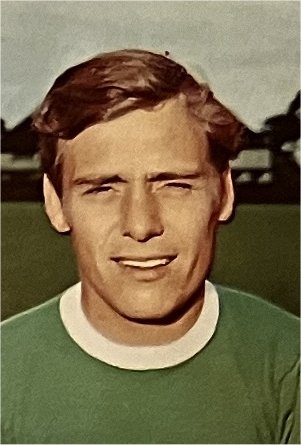
Gordon West: Westy was a first-class keeper. He’d come out for the ball and had a good pair of hands. He was quite agile too for a big, heavy, lad. Gordon was notoriously nervous before games and used to be sick but once he was out there he was alright.
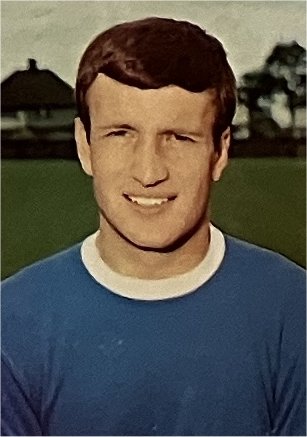
Tommy Wright: Tommy was great. A popular player and he had a good run with England. He was a very good player: quick, a good tackler and hard to play against. He had bony knees and they’d get you in the thigh and give you a dead leg!
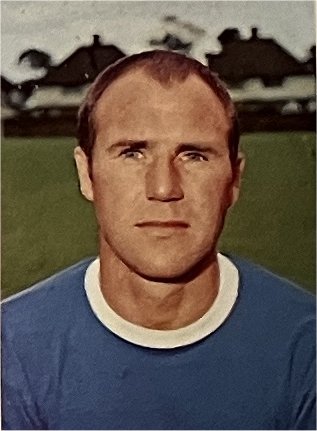
Ray Wilson: Ray was probably the best left-back in the world at that time. You never saw Ray go crunching into tackles – he wasn’t big enough – he was only ten stone stripped down. He was very light but quick and nimble. His main strength was reading the game, making interceptions and getting the danger cleared before it materialised. He was a good distributor of the ball as well.
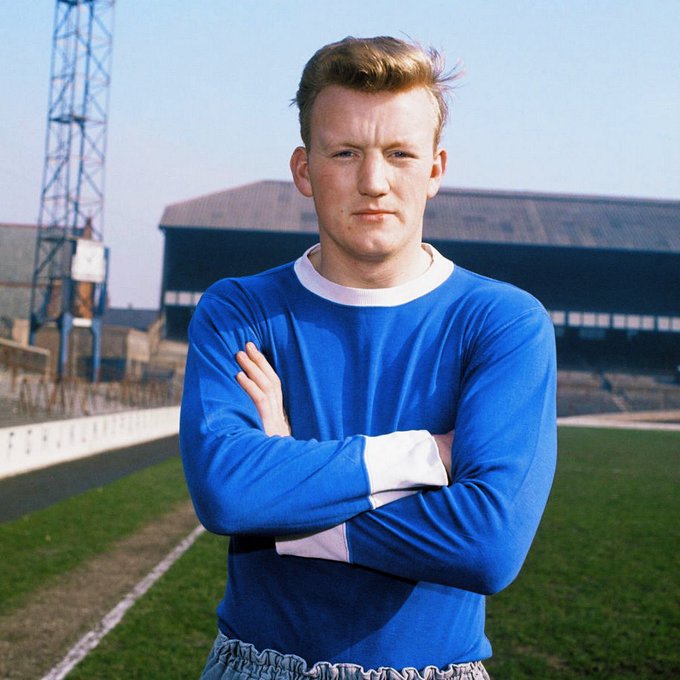
Jimmy Gabriel: Jimmy was very good, a hard player and a typical Scot, really. I thought that all the Scottish footballers were tremendous characters. Jimmy was as hard as nails, he was only young when he came to us and got his fair share of kicks. He never complained but he weighed the player up and would get his own back eventually. If someone was kicking lumps out of you he would sort them out. But he wasn’t just physical, he was a good footballer.
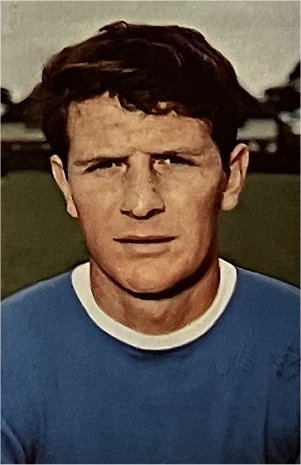
Brian Labone: Labby was a one-off, he was like a Corinthian. Bobby Collins, who would kick anybody no matter what size, always used to be onto him: ‘Get the player into row Z’ but that wasn’t Labby’s game: he’d sooner intercept the ball than tackle. For a centre-half he was a bit like John Stones in that he was cultured. He used to like to play football and a good centre-half. He was a well-educated lad: ‘The pen is mightier than the sword’ was his favourite saying.

Brian Harris: A local boy from the Wirral – Brian had started as a winger but had dropped back. He was excellent and could play anywhere; he could tackle and was a good header of the ball. Having been a forward he could distribute the ball quite well too. He had plenty of energy and was very good for us as a player. Brian had not let anybody down – he would have been away (when Tony Kay arrived) but it was just the way Harry Catterick was thinking about the future. He had had a new lease of life from 1964 but it was a shame about Tony.
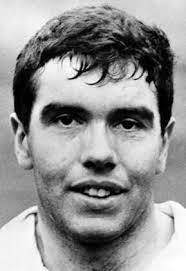
Alex Scott: Alec was a big beefy lad on the wing but was quick for his size. If he got one on one with the full-back there was a fair chance that the ball was coming into the middle and I’d make tracks to get there. I would get goals from a yard out when he’d hit it in but I also scored headers. So Alex was very good for me, he crossed a good ball and I got a lot of goals from him.
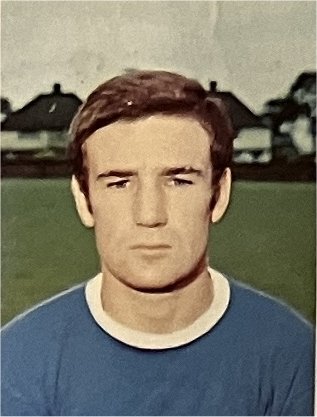
Colin Harvey: Colin was the number 10 but he played deep – almost covering for anything loose in front of the centre-half and wing-halves. He could rotate and cover for them so they could come forward. A very good tackler, very fit and a very good footballer. He could spray passes around as well as anybody.
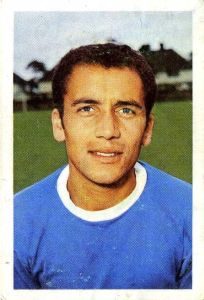
Mike Trebilcock: Mike could hit the net in training – he was a good finisher and you could see that he was always likely to score. He was only a slight lad – he was smaller than me – but he was quite quick and could seize an opportunity. He certainly did that at Wembley with the two goals.

Alex Young: The Golden Vision had wonderful skill. He was not a big lad but had a tremendous spring and he was up there like a helicopter hovering – it was his timing. He had lovely touch and his control was brilliant. People didn’t realise that he could look after himself. He was quite crafty and could out his foot in. As a bloke he was quiet, but what a footballer.

Fred Pickering: He was a converted full-back. For a big lad Fred had good control and could lay it off. I never thought that he was the quickest on the field but he was quick to get a shot in and, invariably, it was accurate. He was a great finisher – we used to call him Boomer because of the booming sound when he hit the ball.
Not Forgotten


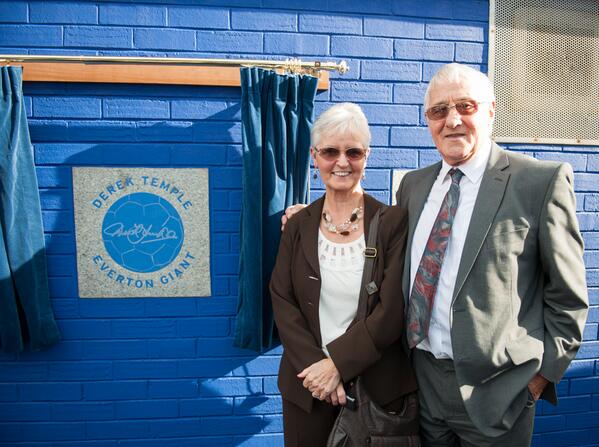
……………………………………………………………….
Acknowledgements:
Derek Temple
Everton FC Heritage Society
Billy Smith, (for sourcing match reports) – Blue Corresponent website
Steve Johnson, Everton Results website
Horace Yates and Jack Rowe – Match reports from the Liverpool Daily Post
……………………………………………………………….
Additional photo research by Mike Royden


